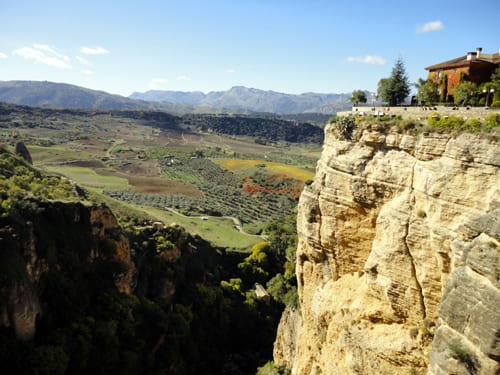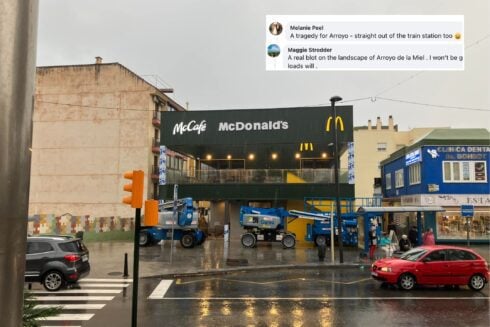ON weekends Jesus and Rosa’s charming restaurant Casa Grande in Alpandeire fills up with a healthy mix of foodies and walkers eager to try its celebrated local, organic dishes.
The rest of the time you can hear a pin drop in the village, which boasts just 300 hardy souls, a couple of donkeys and a doctor (well, once a week at least).
But this is not your average white-washed Andalucian village. For starters, it is almost square in shape, it has almost no expatriates and it counts on a church that is almost the size of a cathedral. Indeed, that is what the locals call it.
This is all down to one rather important Andalucian character. For it was here in the 1866 that a monk Fray Leopoldo was born in the town.
A pious man, he is credited with a number of miracles and in 1961 the Vatican started the process of beautifying him and to this day disciples – mostly of the Capucin order – can be found visiting the village.
Either way, is a charming spot, surrounded by breathtaking countryside with some of the best walks in Andalucia.
Indeed there are few region’s as evocative and unspoilt as the Genal Valley, where Alpandeire perches, surrounded by oak and chestnut trees.
Yet, as the crow flies, it is only ten miles from the concrete ribbon of the Costa del Sol… and 99.9 per cent of the holidaymakers will not have heard of the little-visited area.
And more’s the shame, because the expansive valley that spreads over 42,000 hectares between the coast and Ronda, is a paradise for walkers, wildlife lovers and foodies.
Part of the Serrania de Ronda, this lovely collection of villages – 16 in total – are a joy to visit, each boasting their own local ventas and with a number of comfortable and decent hotels.
“The fact that it is completely undiscovered makes it the perfect paradise for me,” says Diana Beach, owner of Hotel Los Castanos, in nearby Cartijima. “Surrounded by a vast landscape of chestnut forests and craggy peaks, it is a great place to escape the rat race.”
For many years I have enjoyed heading out to the valley for strolls, normally taking in one of the many good restaurants, or sometimes packing a picnic.
A particularly nice time to visit is the late Autumn when the leaves of the valley’s predominantly chestnut (or castano) trees start turning a bright, burning red.
Earlier in September it is fun to take a walk and pick the numerous chestnuts that line the paths, before heading home to toast them on an open fire.
“Chestnuts are the only staple business here,” continues Beach. “Everybody is out in September and every family has their trees.”
In total, there are four different varieties of chestnut trees, some of them up to 500 years old.
Each local village picks them and sells them to a local cooperative that markets them around Spain and abroad.
The only other industry in the valley involves the production of artesanal products,
such as baskets, cork stools and blinds.
The latter – along with baskets and mats – are usually woven out of a plant, known as esparto, which is found on the high peaks, known as the ‘riscos’ above the valley.
Making beautiful blinds, which can be seen on many traditional houses in Ronda, and further afield in Sevilla, they are usually made to order and are not cheap.
Without a doubt, the Genal Valley’s main future will be tourism, with plans to open up the area with better roads and infrastructure.
Said to have one of Europe’s cleanest rivers – the Genal – the area also boasts one of the last few remaining Mediterranean Oak forests.
There are plenty of places to swim in the river, one of the best down below Juzcar, where just across the river you will find one of those remarkable little chestnuts that makes your whole journey worthwhile.
For near this tiny village – now most famous for its smurfs – lies a former tin factory, once with a royal seal, that now makes wonderful olive oil and is soon to produce its own wine.
In the process of being reformed by charming Catalan Enrique it nestles in a secret valley and is peace personified.
Best of all, it is only 45 minutes to Marbella, which is all the more remarkable.











